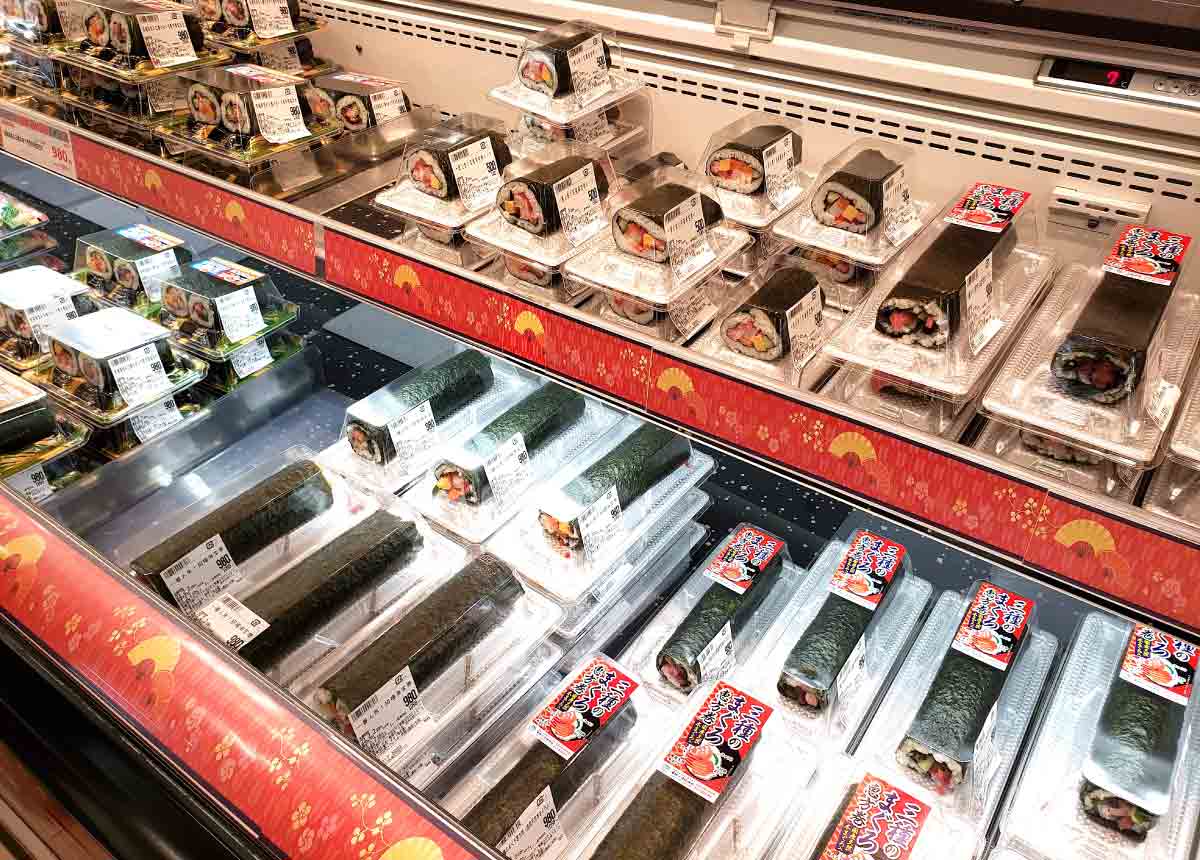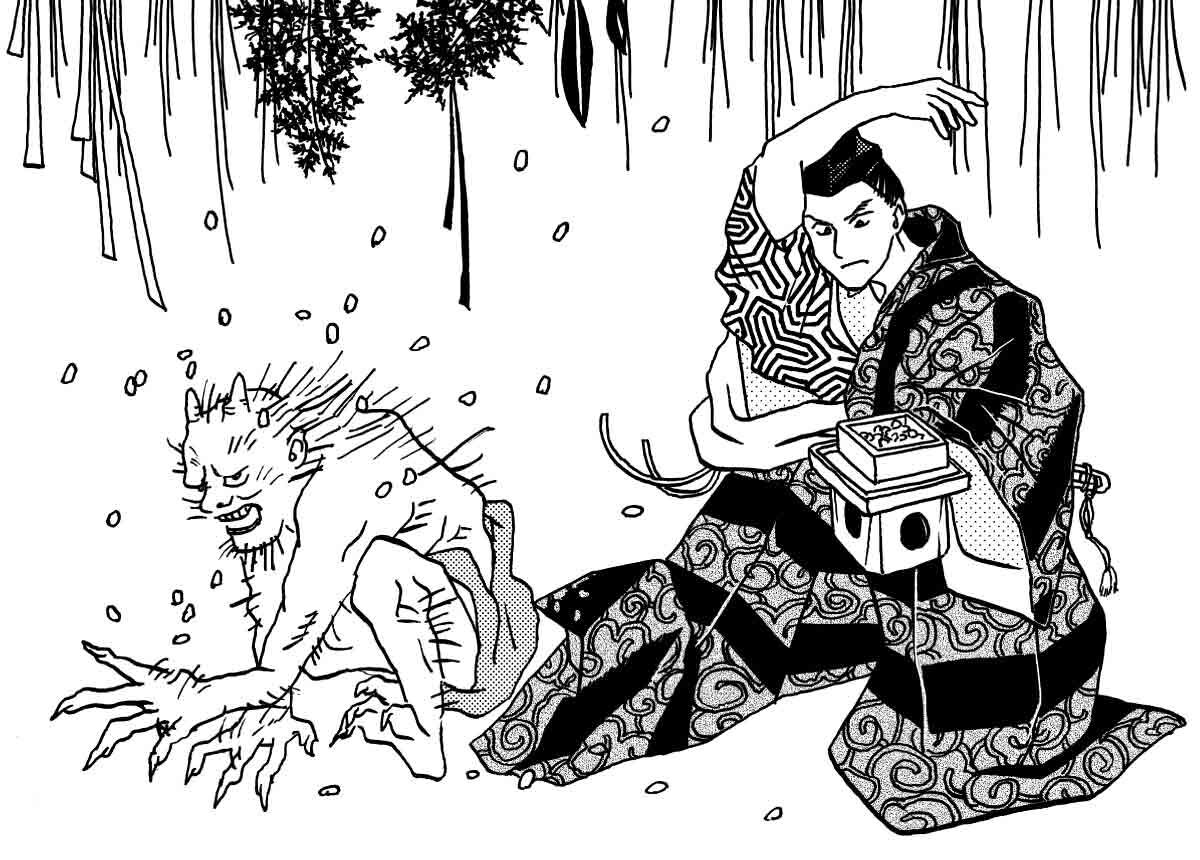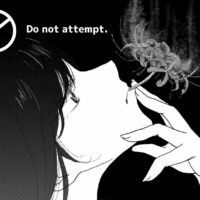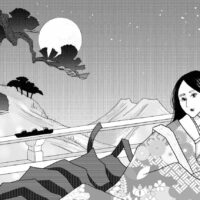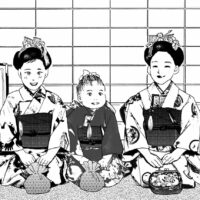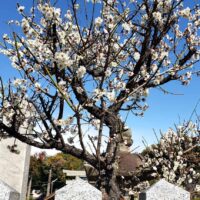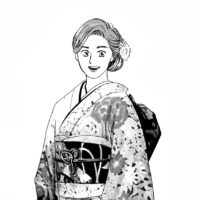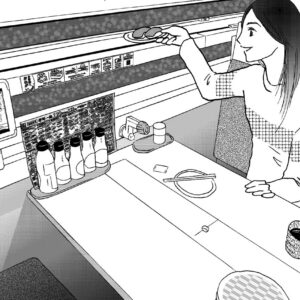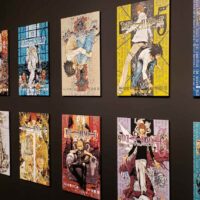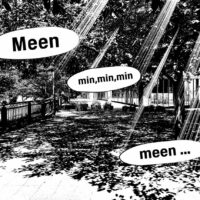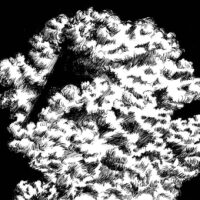In Japan, this is the time when the cold of winter reaches its peak and turns into spring. That day is called Setsubun. Since it was believed that evil spirits (demons) arose at the change of seasons, people performed rituals to drive them away in the past. It remains today as “mame-maki” (bean-throwing).
On Setsubun day, February 3rd, each household holds a “mame-maki” (Japan’s bean-throwing ceremony). People open the front door and throw beans outside while chanting, “Oni wa soto, Fuku wa uti (Demons out! Fortune in!)” When they have finished throwing the beans, they close the door to keep the fortune from escaping. Afterwards, each family member eats beans equal to his or her age plus one and makes a wish for happiness in the coming year. We believe that by eating beans, a specialty of Japan and a source of energy similar to rice, we receive power from the deity.
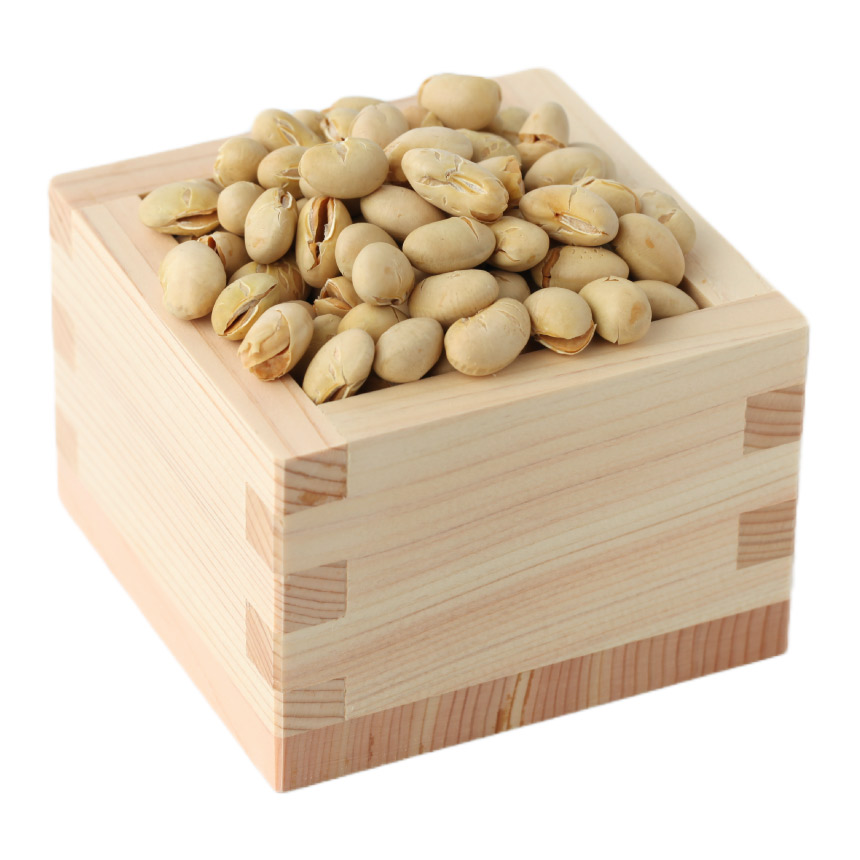
Another thing to do on Setsubun is to eat “ehomaki.” Ehomaki is a sushi roll. The rule of this custom is to eat up the sushi rolls facing the direction of blessings for the year without saying anything. It is said that if you eat all the way through without speaking while thinking of your wish, your wish will come true. The direction of blessing this year is south-southeast.
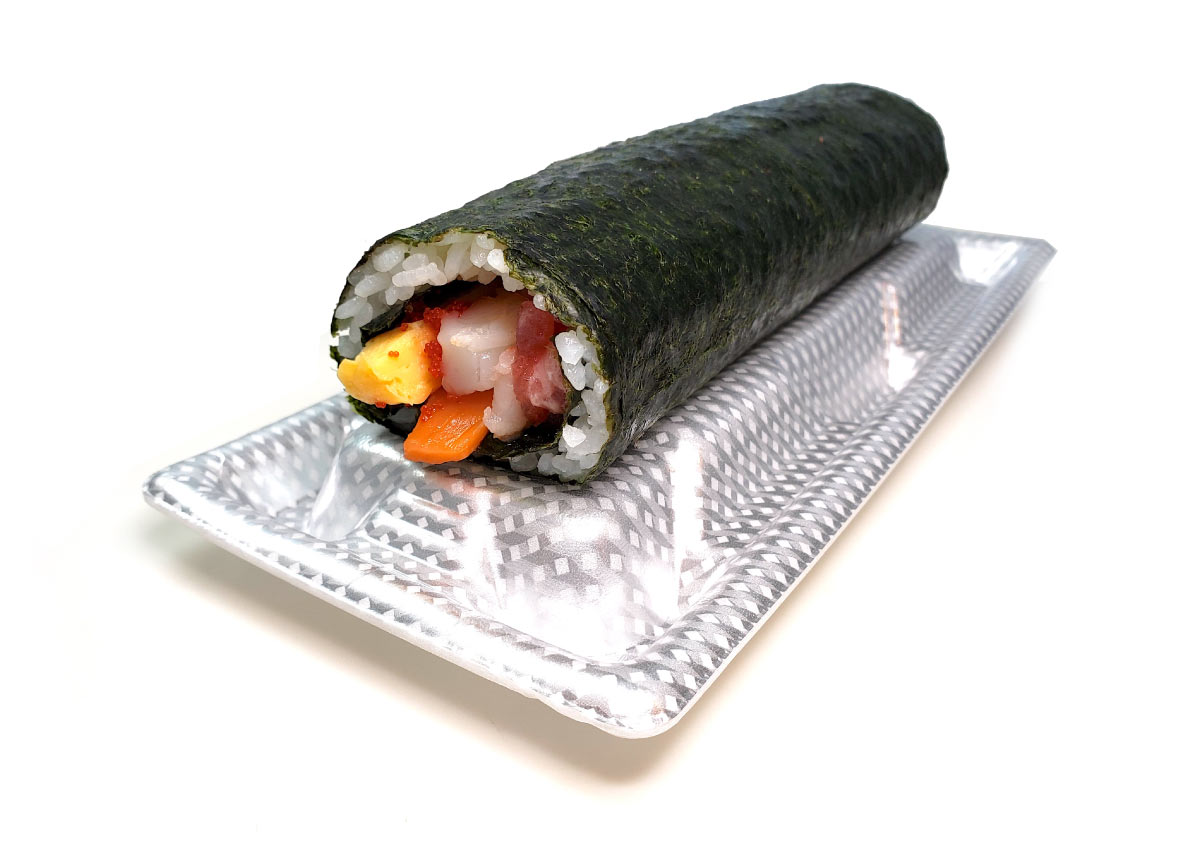
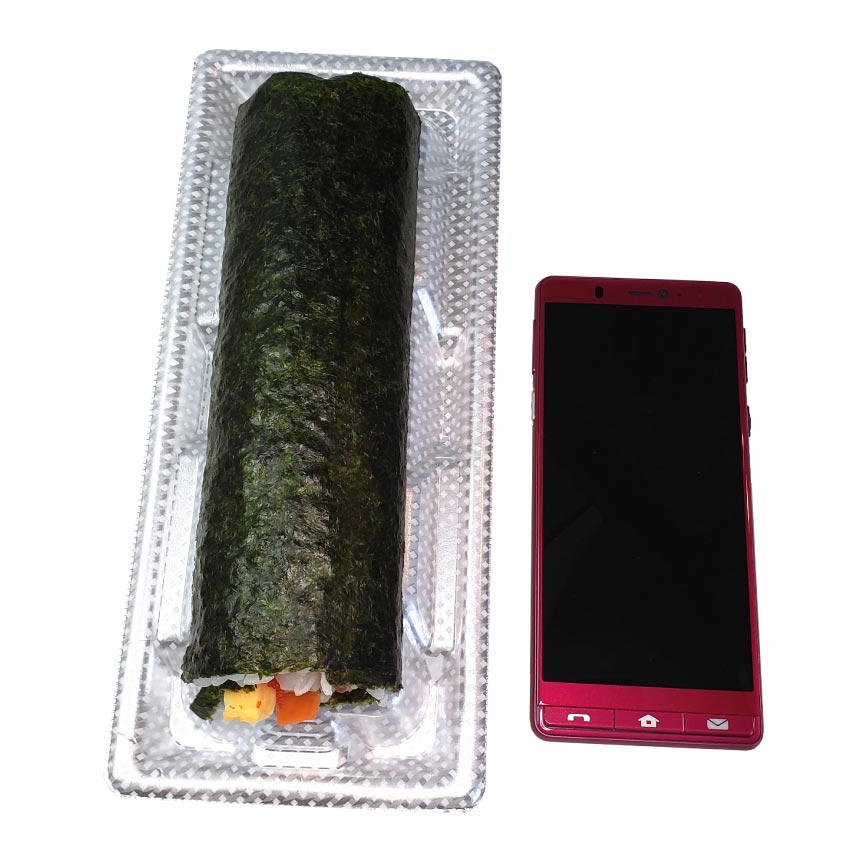
My memories of Setsubun as a child were that the beans thrown outside would call birds the next day, and that my mother had a hard time cleaning because we also threw beans inside to bring fortune into the house. And, as a child, it was difficult for me to eat a whole ehomaki in silence, wanting to chat with my family during the meal. While everyone in the family ate their ehomaki in silence, I would eat them up early to make my brothers laugh and prevent their wishes.
